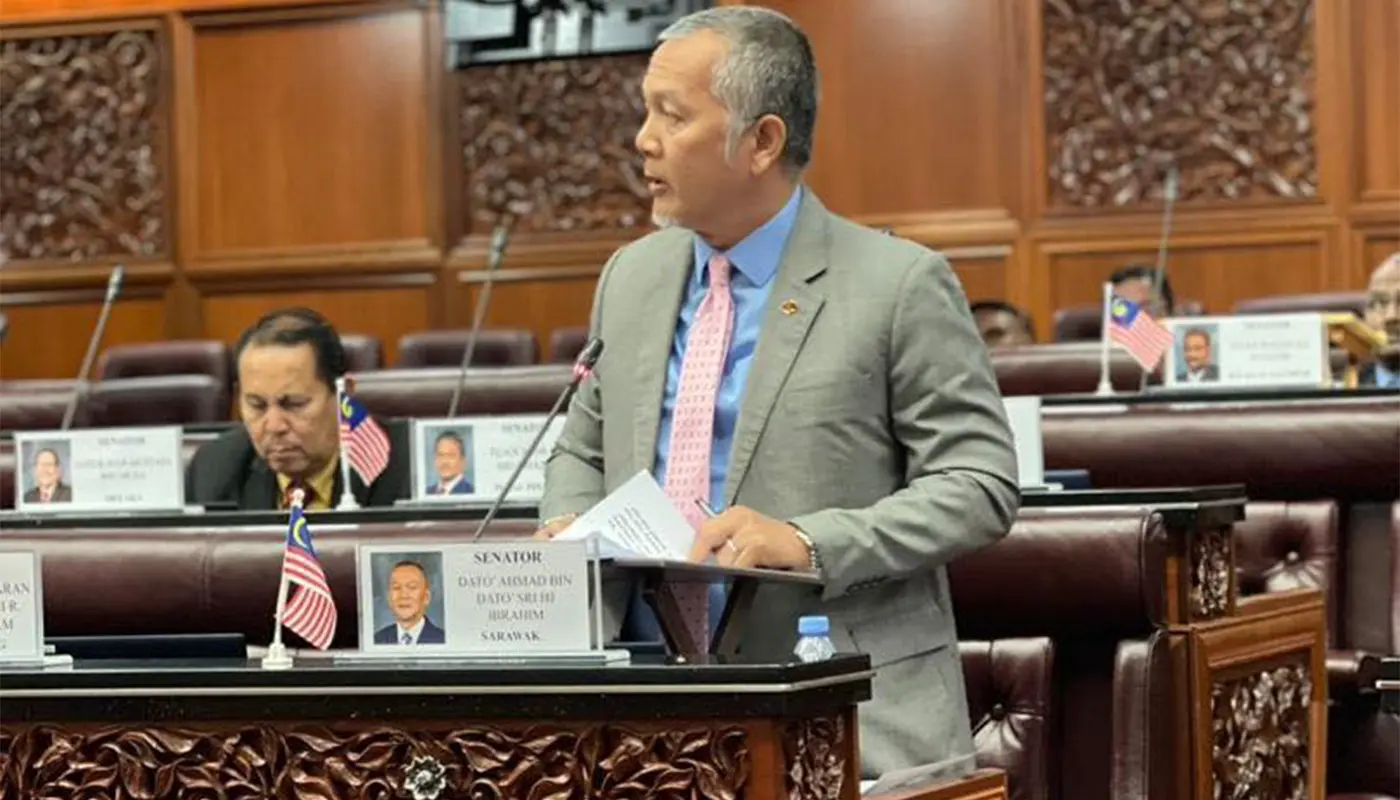KUALA LUMPUR – The Government Procurement Bill 2025 must be implemented in a way that preserves the autonomous rights of Sarawak and Sabah, in line with the safeguards under the Malaysia Agreement 1963 (MA63), according to Senator Dato Ahmad Ibrahim.
Speaking during the Senate debate on Monday, he cautioned that federal laws must not be used as instruments of “forced integration” that undermine state powers.
He stressed that while the bill is a crucial step toward strengthening financial integrity and accountability in public spending, its success depends on fairness, respect for autonomy, and ensuring equal opportunities for contractors from East Malaysia.
“The Government Procurement Bill 2025 is an important step to strengthen the country’s financial integrity, but it will only be successful if it is implemented firmly, respects state autonomy and provides fair opportunities to local contractors,” Ahmad said.
He highlighted concerns from past practices, citing a 2023 Malaysian Integrity Institute study which revealed that about 35% of procurement-related complaints involved tender manipulation, price fixing, and domination by select groups. Such weaknesses, he noted, have often led to project delays, cost overruns, and leakages.
Ahmad also outlined three key issues for consideration:
- Jurisdiction overlaps between federal contracts and state legislation.
- Federal project repayments using Sarawak’s state funds, which should be settled within two years.
- Access for local contractors, particularly SMEs from Sarawak and Sabah, who should not be overshadowed by larger Peninsula-based companies.
To address these issues, he proposed clear clauses within the bill that recognise state autonomy, a minimum quota for local contractors in both states, and a transparent digital procurement platform to ensure equal access. He also recommended a structured repayment mechanism with periodic reviews for federally funded projects.
“The people have long demanded a procurement system that is transparent, efficient, and delivers value for money,” he added.
“This law should be a framework for Federal-State cooperation that respects Malaysia’s diversity, not a standardisation tool. It must move away from relationship-based procurement toward one built on merit, integrity, and results.”
The bill, which is currently being debated, is intended to reform public procurement by embedding stricter oversight and accountability measures.





